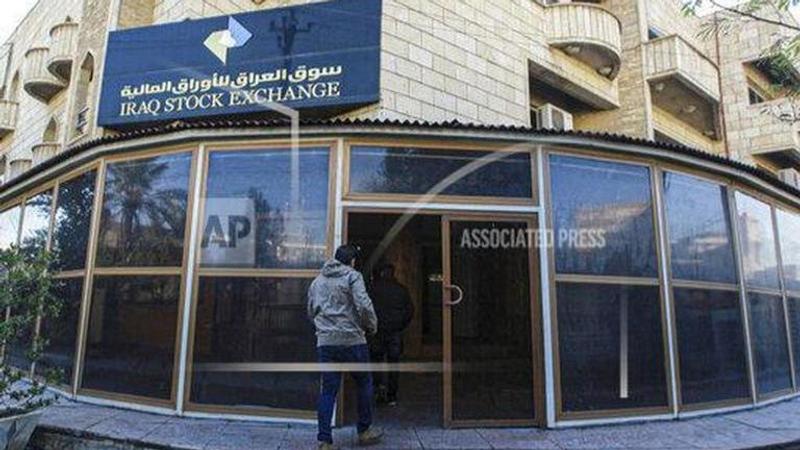Published 11:16 IST, March 19th 2020
Iraq could face economic crisis with virus and oil
Iraq could be facing an economic crisis in the wake of both a drop in oil prices and the worldwide pandemic of the new coronavirus.

Advertisement
Iraq could be facing an economic crisis in the wake of both a drop in oil prices and the worldwide pandemic of the new coronavirus. The crude-exporting country is struggling to finance measures to contain the new virus pandemic, and the unexpected oil price war between Russia and Saudi Arabia is further exacerbating budget shortfalls as losses accrue daily in trade, commerce, tourism and transportation.
Meanwhile, Iraq faces a deepening political crisis as rival blocs sparred for weeks over the naming of the next prime minister, leading to a void in the country's top leadership.
On Tuesday, former governor of Najaf, Adnan al-Zurfi, was named premier-designate but it remained to be seen whether political blocs will approve his Cabinet line-up.
Prime Minister Adel Abdul-Mahdi's government has been functioning in caretaker status since his December resignation under pressure from mass protests.
Oil prices were already suffering shock from the virus outbreak and plunged further when Saudi Arabia began heavily discounting its crude and announced plans to increase output, coming after Russia refused to sign on to a plan proposed by the Saudis to cut output and manage global oil supplies at an OPEC (Organisation of the Petroleum Exporting Countries) meeting earlier this month.
Iraq relies on oil exports to fund over 90% of state revenue - the country's proposed 2020 budget projected revenues at 56 US dollars per barrel but political deadlock has delayed its passing, casting more uncertainty over Iraq's economic future.
"Without a doubt, the fall of oil prices have had a negative impact on the Iraqi economy, and this is due to the almost total dependence on revenues from oil exports. This means this crisis will translate into a decrease in the level of government expenditures." Dr. Ahmed Saddam, Oil analyst, University of Basra said.
Already, the economic challenges are having an impact. Last week, Health Minister Jaafar Allawi said in televised comments that 150 million US dollars per month was still needed to purchase equipment and materials to fight the virus. To meet these needs the Finance Ministry said it was accepting donations from banks, government and private institutions. Kuwait has pledged 10 billion dollars
Meanwhile, virus cases continue to rise, with 12 dead among 164 confirmed infected, according to the Health Ministry.
Transport, trade, tourism and commerce are among the sectors hardest hit by the pandemic, according to senior Iraqi officials, experts and businessmen. The movement of goods has decreased by at least 30%, said Iraq's Transport Minister Abdullah Laibi.
Prices in the local market are already seeing the impact. Ahmed Rahim, 25, a grocer in Baghdad said price of Iran-imported onions for example has nearly doubled.
Cargo shipments entering Iraq from two main southern commodities ports were doused with disinfectant, while health inspectors conducted checks in line with new regulations, said Safaa al-Fayadh, director-general of Iraq's ports.
"We steralised all containers coming from the Emirates as a precautionary measure," said Sameer Maktouf Arabi, assistant manager at Umm Qasr Port.
Private businessmen in Baghdad's commercial centers said they have had to let go staff because of plunging revenues.
"The market and the economy are in a bad situation because of the Coronavirus. Look at the market, shops are empty, people are afraid to come to the market, we had to release many of our workers, our business is finished." Mohammed Jassim, shop vendor said.
For most people, the new coronavirus causes only mild or moderate symptoms, such as fever and cough. For some, especially older adults and people with existing health problems, it can cause more severe illness, including pneumonia.
The vast majority of people recover from the new virus. According to the World Health Organization, people with mild illness recover in about two weeks, while those with more severe illness may take three to six weeks to recover. Worldwide, more than 185,000 people have been infected and more than 7,300 have died. Over 80,000 have recovered, most of them in China.
11:19 IST, March 19th 2020




